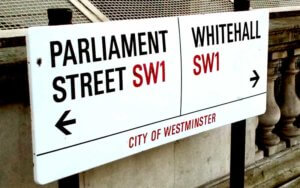The private sector has implemented the Equality Act far better than central and local government a committee of peers has been told by a prominent disabled campaigner.
The peers were told that the focus on disability discrimination had faded since the “generic” Equality Act replaced legislation such as the Disability Discrimination Act, and the Equality and Human Rights Commission (EHRC) had replaced the Disability Rights Commission (DRC) and other equality watchdogs.
Fazilet Hadi, director of engagement at the disability charity RNIB, told the committee that she did not think the Equality Act was taken seriously enough by local and central government.
She was giving evidence in the second public session of the Equality Act 2010 and Disability Committee, set up by the House of Lords to examine the impact of the Equality Act 2010 on disabled people.
Hadi said: “I think we have seen better implementation of the act from the banks, the utilities, the John Lewis-es, the private sector, than we have ever seen from central or local government, and that is a bit of an indictment given that this is government legislation.
“In 2015, there are still government departments that do not have proper mechanisms for giving blind and partially-sighted people and other people with disabilities info in accessible formats.
“That’s not rocket science. They should have been doing it since 1999 and they are still not doing it.
“We have got inaccessible websites, we have got inaccessible streetscapes, we have got inaccessible services.
“Government really should be leading the way, they should be role models for this stuff, and they’re not.”
Liz Sayce, chief executive of Disability Rights UK, who also gave evidence to the committee, said that the sense of “moving in a positive direction seems to have slightly stalled” since the Equality Act was introduced, while “the hope that is attached to it is not as strong as it was”.
She said the act could be “better promoted, used more systemically, and not just left to the individuals to pursue things”, for example, through the courts.
Sayce said there needed to be more focus on the public sector equality duty (PSED), which imposes duties under the Equality Act on public sector organisations, including central government departments.
She said: “I think we need a revived, high-level commitment to the PSED and to the principle of systemic change, not just reliance on individual redress.”
Sayce said that DR UK was hearing frequently though its advice line that disabled people were “finding it very difficult to exercise their rights” in the workplace, and to access goods and services.
She said: “It would be good to have a stronger, cross-government leadership on these issues… I don’t see the equality frame being used all that much and I think it would be really useful if it was.”
Both Hadi and Sayce also criticised EHRC.
Sayce said the EHRC had not been as active as the DRC in engaging with stakeholders, such as disabled people’s and business organisations and unions.
She said: “As a stakeholder of the EHRC, I don’t see that kind of engagement.
“The budget has gone down, the engagement has gone down, and although there are examples of good initiatives, I don’t see evidence of a systemic approach to really moving forward on disability equality that is strong enough.”
Hadi added: “I, personally, as the director of a disability charity, have very little contact [with EHRC].
“When the Disability Rights Commission was around, in those good old days, I would go there regularly, we’d talk to them regularly.”

 Government is misrepresenting workplace disability inequality, MPs are told
Government is misrepresenting workplace disability inequality, MPs are told It was emergency planning that was vulnerable during Covid, not disabled people, inquiry is told
It was emergency planning that was vulnerable during Covid, not disabled people, inquiry is told